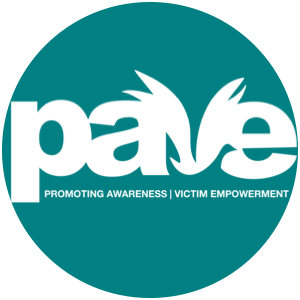Sexual Violence in the LGBTQ Communities
Sexual violence does not discriminate among people. No matter a person’s gender, race, ethnicity, sexual orientation, age, ability, and religious or political affiliation, they are not immune to sexual violence. The violence faced by each community and every survivor matters. While it is true that sexual violence affects people from all walks of life, it is important to understand that certain groups are particularly vulnerable to being sexually assaulted. One of these groups is the LGBTQ community, which faces a substantially higher risk for sexual violence than many other communities.
One of the main reasons for this heightened risk is discrimination. Due to their marginalized identities, individuals belonging to the LGBTQ communities face a plethora of discrimination. Marginalization and discrimination can increase rates of sexual violence. According to the Human Rights Campaign, “The 2015 U.S. Transgender Survey found that 47% of transgender people are sexually assaulted at some point in their lifetime. Among people of color, American Indian (65%), multiracial (59%), Middle Eastern (58%) and Black (53%) respondents of the 2015 U.S. Transgender Survey were sexually assaulted in their lifetime” (HRC). These statistics illustrate how members of the LGBTQ community are at a heightened risk of being sexually assaulted compared to cisgender women (33%) and cisgender men (nearly 25%), according to the CDC.
Additionally, according to the Pennsylvania Coalition Against Rape, a study conducted in 2011 showed evidence that gay men are 15 times more likely than straight men to be sexually assaulted during their lifetime and that lesbian and bisexual women are up to 3 times more likely to be assaulted than straight women.
These statistics are staggering, but not new. They are part of a long history of LGBTQ individuals being targeted for their identities. Sexual violence has always been used as a tool of oppression to maintain and uphold “traditional” gender norms. Despite marriage equality becoming legal in the United States in 2015, there is still a long way to go as many people in the LGBTQ communities still face discrimination on a daily basis.
This discrimination affects more than just the rates of sexual assault. LGBTQ individuals also face additional barriers to seeking justice for crimes committed against them. In some states, people in the LGBTQ communities face less legal protection than cisgender and heterosexual individuals. For instance, LGBTQ individuals may not be eligible to get a restraining or protective order against their perpetrator due to their gender identity or sexual orientation. A 50B protective order is given to individuals in an abusive relationship; however, some states have laws that specifically mandate that these orders can only be given if the individuals were in a heterosexual relationship. This legislation is especially damaging to people in the LGBTQ communities who may be in abusive relationships. Unfortunately, LGBTQ survivors are not always equally supported and protected under the law.
Moreover, for individuals who have not publicly shared their identity, there is fear that their perpetrator will share their identity publicly. This can be found especially with abusive dating relationships. Survivors may not be able to seek help due to fears of violence, not being believed, bullied, harassed, or losing friends and family due to their identity. This can be detrimental to the survivor’s mental health, physical wellbeing, and safety. These barriers barely scratch the surface when it comes to the obstacles survivors in the LGBTQ communities face when it comes to reporting and seeking help after sexual violence.
June was Pride Month, which brings LGBTQ rights and voices into the forefront of the conversation, but people in the LGBTQ communities deserve to have their voices heard and to be supported every day of the year. More and more sexual and domestic violence resources are committed to having LGBTQ inclusive and specific resources to fit the needs of survivors. PAVE shares in this sentiment. If you or someone you know is in need of support or resources, please reach out! PAVE is committed to helping, supporting, serving, and standing with survivors of all gender identities and sexual orientations.
Written By: PAVE Outreach Intern, Kaitlin Durkin
